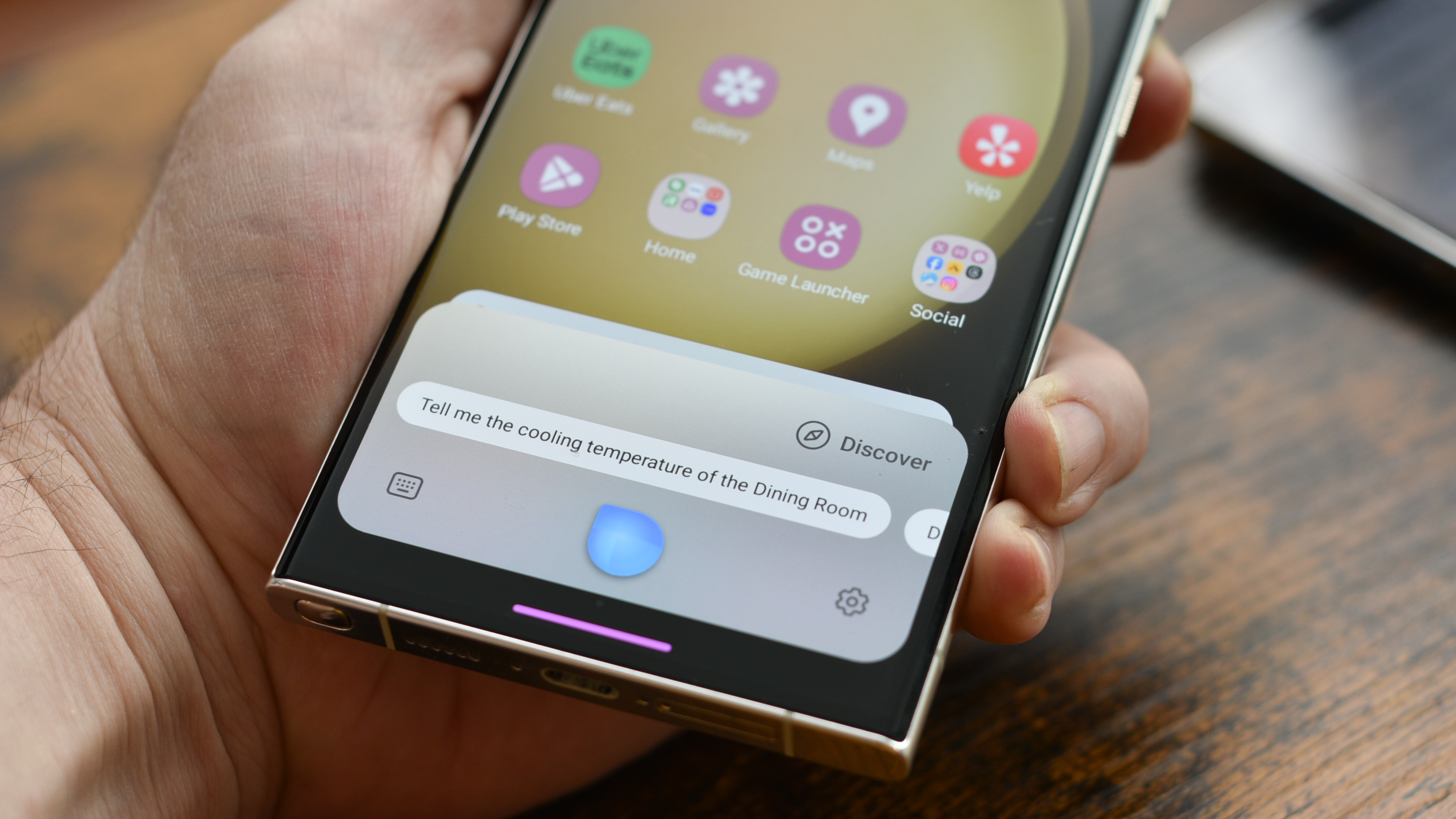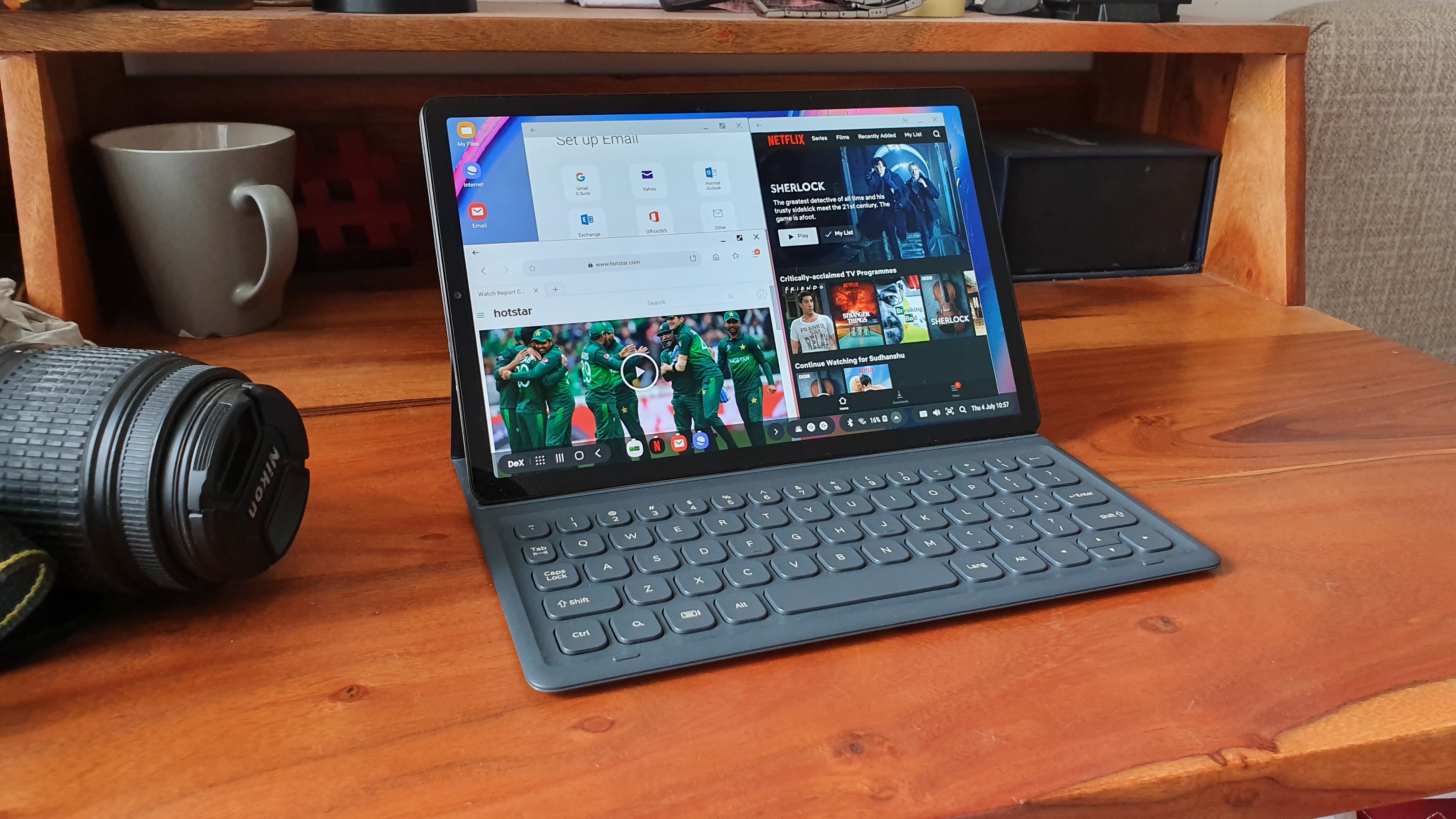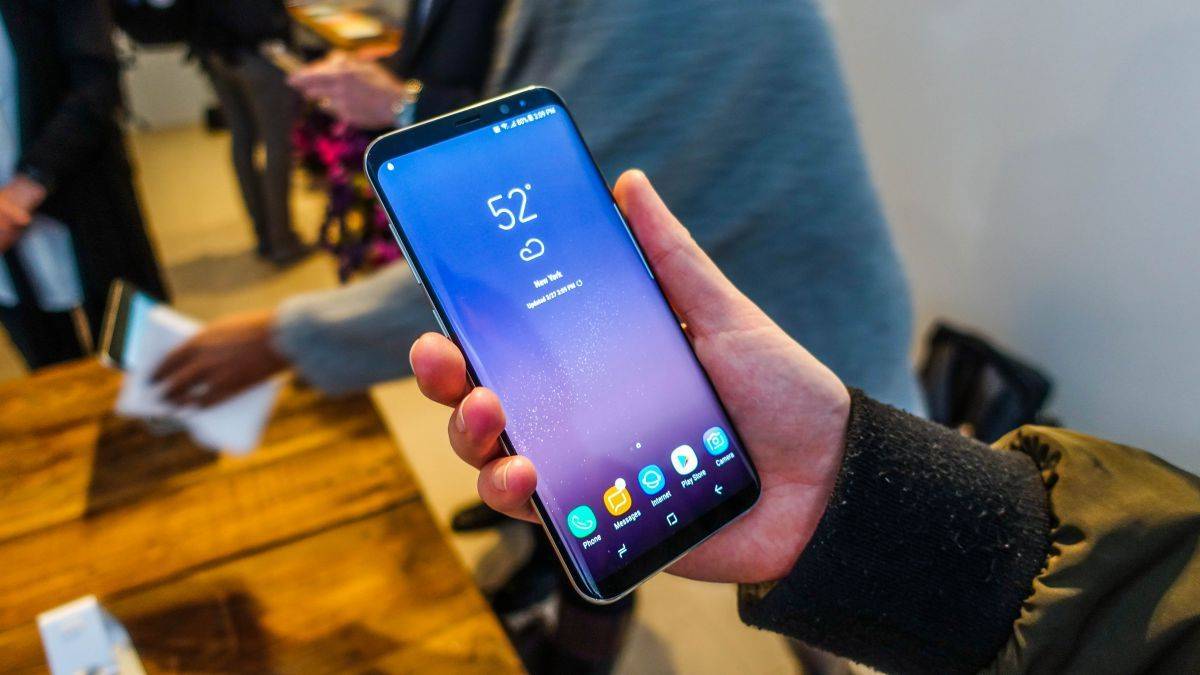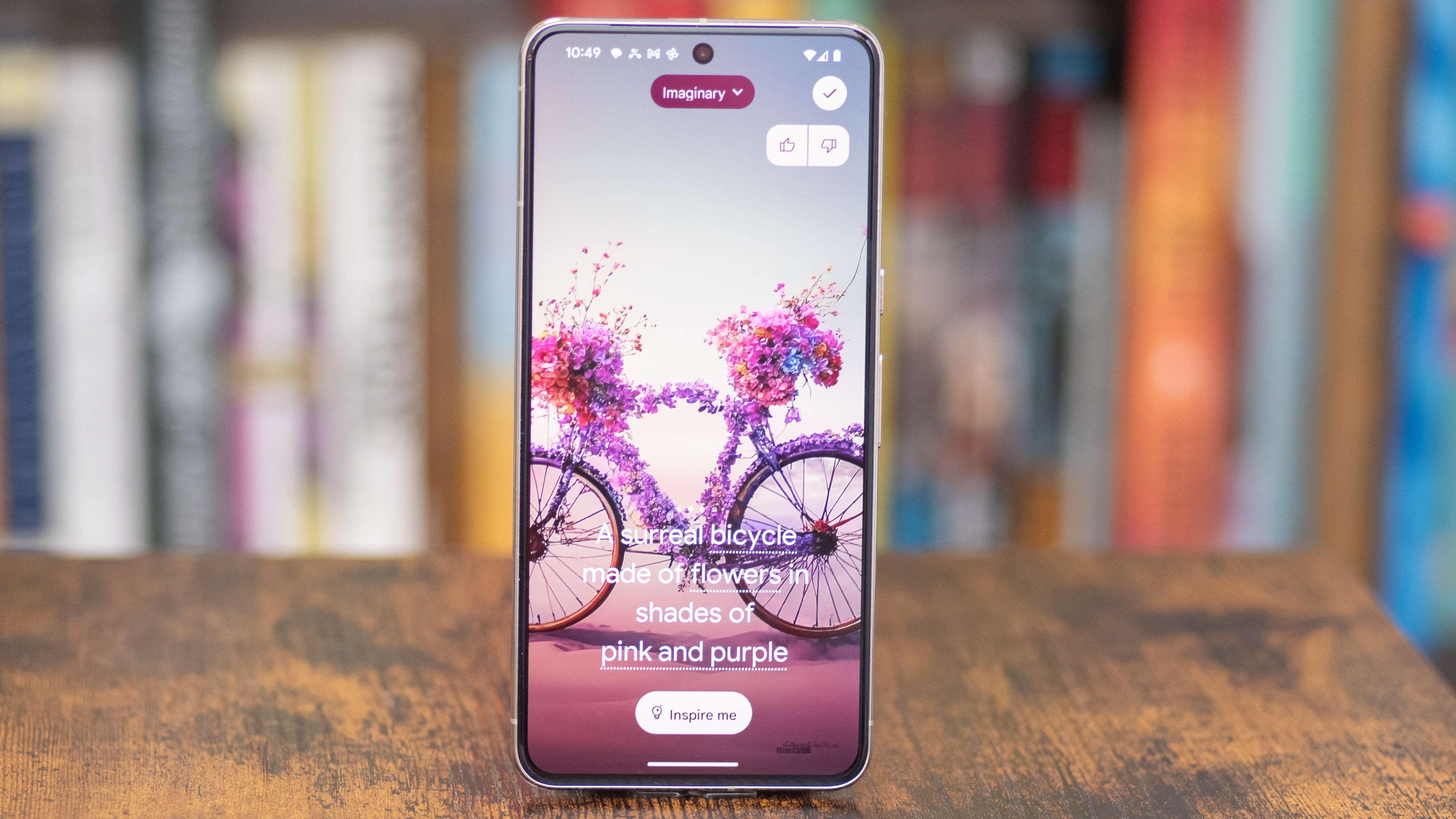Galaxy AI could be Samsung’s last chance to redeem Bixby
Bixby with a brain would be a formidable AI

Watching Samsung’s press conference at CES 2024, I saw something I wasn’t expecting. I don’t mean AI, of course, since everything at CES that could talk, talked about AI. During the show a familiar logo crept onto one of the later slides – the ‘b’ for Bixby. I was hoping to see Bixby mentioned in the same breath as AI, though Samsung didn’t actually explain what Bixby was doing there. Still, this could finally be Bixby’s last, best chance for redemption.
Why does Bixby need redemption? A better question might be why do you hate Bixby? When I mention Bixby in the Future offices, I get confused looks and laughter. When someone else invokes the name of Bixby, everyone looks to me because I’m the only person who seems to care. I’m a genuine fan of Bixby, as a concept and in execution, but maybe not for the reason you’d expect.

You might think only die hard Samsung fans could love Bixby, but that’s not the case at all. I’m not a die hard fan, and true Samsung fans stan DeX, not Bixby. Samsung’s desktop environment is the best case power users make to justify their Samsung addiction. Bixby doesn’t come up at all.
The problem that Bixby solves is finding features
Bixby didn’t fail ... Bixby just wasn’t made for all that nonsense
I own a Samsung Galaxy S23 Ultra. I bought it myself, it’s not a review sample sent by Samsung. I liked the phone enough to pay for it, but I don’t like everything about it. I hate the Settings menus, and the overwrought interface hassles. I hate that great features are buried layers deep under menus, and often Samsung makes a menu button out of things that don’t look like buttons. If that sounds confusing, you’re getting the gist.
I like Bixby because Bixby solves that problem. I don’t need to know where wireless power sharing sits in my Settings drawer. I can just ask Bixby to turn it on. I don’t need to fumble for the Quick Settings drawer whenever I want to toggle my Wi-Fi hotspot, or even something as simple as my flashlight. I can just hold down the Bixby button and ask Bixby.
Why everyone hated Bixby from the start
Oh, did you think that was the power button? That’s one reason people hate Bixby so much. For a while, a Galaxy S phone would call up Bixby every time you pressed the power button. It was clearly a ploy to force more people to try Bixby, but it didn’t make those people want to keep using it.
The other reason people hate Bixby is because of Alexa and Siri. Samsung launched Bixby just as the novelty of Siri and Alexa was wearing off. These voice assistants were becoming more tiresome and forced than actually useful. When Bixby arrived, it seemed like Samsung’s also-ran attempt to steal some attention from an already-unpopular feature.

Making things worse, Bixby doesn’t do a great job at all the things Siri and Alexa can do. Bixby can’t divine Leonardo DiCaprio’s net worth, or search for detailed answers on the web. When Bixby launched to reviewers on the Galaxy S8 and Galaxy S8 Plus, folks quickly ran side-by-side tests showing the ways that Bixby failed compared to other assistants. Poor Bixby’s reputation never recovered.
Bixby didn’t fail, though. Bixby just wasn’t made for all that nonsense. Bixby is an interface, here to do things on your phone, not fetch things from Wikipedia. In fact, when Samsung originally launched Bixby back in 2017 (and BTW I worked at Samsung from 2011 until 2017), it didn’t just peg Bixby’s future to the smartphone. Bixby would eventually be a control system for all of Samsung’s products, including home appliances.
Bixby for more than just your smartphone
I’ve been following Bixby closely ever since, and CES 2024 was the first time since then that I have seen Bixby mentioned with the rest of Samsung’s appliances. Except “mentioned” may be too strong, because Bixby made a cameo appearance. It was an Easter egg, perhaps, but its inclusion in a presentation titled “AI for All” has me hopeful about Bixby’s future, though this may be the last chance I give Samsung to get Bixby right.
While other companies talk about generative AI – AI tools to create images and craft email responses – the AI that I really want on smartphones should be totally invisible. I want AI behind the scenes, improving everything in useful ways, without my intervention. I like the AI wallpaper on my Pixel 8 Pro, but I’d really like AI that helps manage the notifications that are important to me.

I have high hopes for Bixby on future Samsung products because Bixby is all about making things easier to use. Bixby already has a full language set of commands that it recognizes. I’m not sure how Bixby is coded, obviously, but it would seem that a voice assistant could naturally evolve into an AI tool.
Don’t stop with the smartphone, either. Every Samsung product needs interface help. The best Samsung TV is just as hard to navigate as my smartphone, if not worse. If you turned off Smooth Motion for your parents this holiday season, you know what I’m talking about. Samsung refrigerators are also getting smarter, and even Samsung washers and dryers now feature AI, but could also use a better interface than dials and cryptic washing modes.
I love Samsung phones for the myriad features they include, but I loathe Samsung’s interface for making those features so hard to find. I am hopeful that with the dawn of AI, Samsung will empower Bixby to become a true voice interface, and not just a copycat assistant. If it’s as good as I know it could be, I’d even welcome back the Bixby button.
Get daily insight, inspiration and deals in your inbox
Sign up for breaking news, reviews, opinion, top tech deals, and more.

Phil Berne is a preeminent voice in consumer electronics reviews, starting more than 20 years ago at eTown.com. Phil has written for Engadget, The Verge, PC Mag, Digital Trends, Slashgear, TechRadar, AndroidCentral, and was Editor-in-Chief of the sadly-defunct infoSync. Phil holds an entirely useful M.A. in Cultural Theory from Carnegie Mellon University. He sang in numerous college a cappella groups.
Phil did a stint at Samsung Mobile, leading reviews for the PR team and writing crisis communications until he left in 2017. He worked at an Apple Store near Boston, MA, at the height of iPod popularity. Phil is certified in Google AI Essentials. He has a High School English teaching license (and years of teaching experience) and is a Red Cross certified Lifeguard. His passion is the democratizing power of mobile technology. Before AI came along he was totally sure the next big thing would be something we wear on our faces.